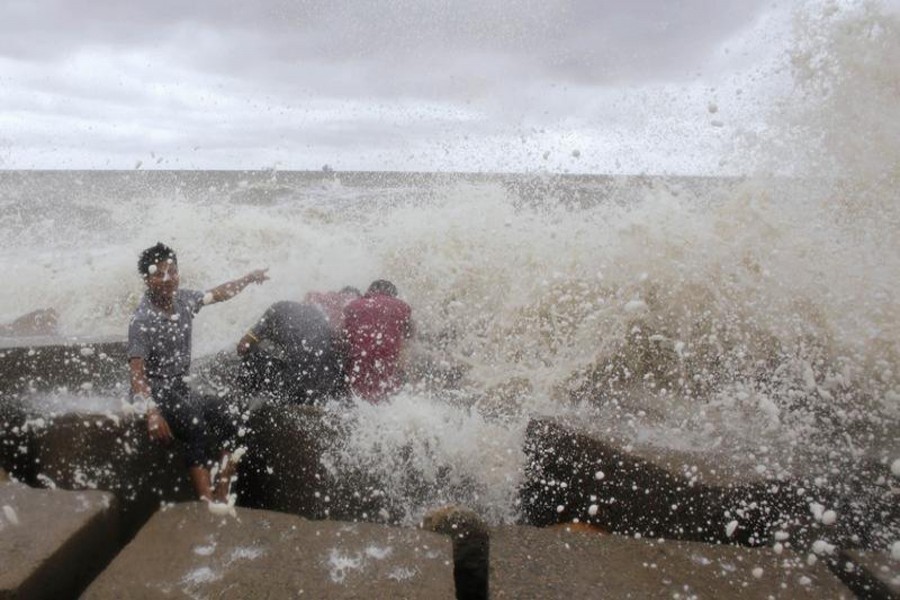The country's fast-growing economy may be disrupted in the medium to long run, due mainly to a rising sea, researchers warn.
Bangladesh is one of the most exposed and vulnerable countries to climate-related risks, according to Global Climate Risk Index-2018.
The warning against economic disruption from climate change came at a workshop organised by the finance division on Thursday in the city.
A number of researchers presented papers linking climate change to the Bangladesh economy.
The researchers said that the country's gross domestic product growth loss due to the climate change ranges from 1.49 per cent to 3.02 per cent in the medium run depending on the scenarios of sea level rise.
The researchers forecast by using econometric tools up to 2050, medium run is assumed to be extended up to 2030 while the long run up to 2050.
In the long run, the GDP growth loss on the same ground is huge, especially 3.02 per cent by 2050 in case of higher sea level rise scenario.
A number of researchers mostly from the ministry of finance showed the possible impacts on the economy by integrating the climate change into the macro economic variables, GDP, employment and investment.
They said there are possible impacts on the public investments due to the climate changes.
They estimated the loss in public investment may range from 1.52 to 2.54 per cent depending on the scenarios of the sea level rise in the medium run.
The researchers argued there is a need for public investment for adaption otherwise the GDP loss will linger and aggravate in future.
One paper also highlighted the 'potential GDP' arguing the loss of potential GDP may increase up to 2.86 per cent in 2024 at a time when Bangladesh will graduate to a developing nation status.
Such losses may increase up to 5.01 per cent by 2030 when the SDGs (sustainable development goals) ends and up to 10.46 by 2050.
The annual loss of employment due to the damage of capital would be 2.21 million by 2024, while it would be 3.93 million by 2030 and 5.73 million by 2041 compared to the level of employment without the effect of climate change.
This may cause capital loss like the land loss and people may migrate to the urban areas.
The cumulative loss of employment would be enormous - up to 139.54 million between 2020 and 2050.
It estimated the amount of investment required for recovery.
In 2020, the required investment would be Tk 0.35 trillion, equivalent to 2.87 per cent of potential GDP.
It would reach 0.7 trillion in 2030, and 2.58 trillion in 2041 at the time of Vision-2041 depending on the variation of temperature changes.
They suggest there is a need for domestic resource mobilisation for financing climate change adaptation including the issuance of 'climate bond'.
They said such type of bond may be on a pilot basis to observe the response of the institutions and market to such an innovative financing instrument.
They also said the government should devise a strategy to channel the private fund of corporate social responsibility for adaptation projects.
The papers presenters were joint secretaries Dr Altaful Alam and Sirajun Noor Chowdhury and research director at the Bangladesh Institute of International and Strategic Studies (BIISS) Dr Mahfuz Kabir.
jasimharoon@yahoo.com


